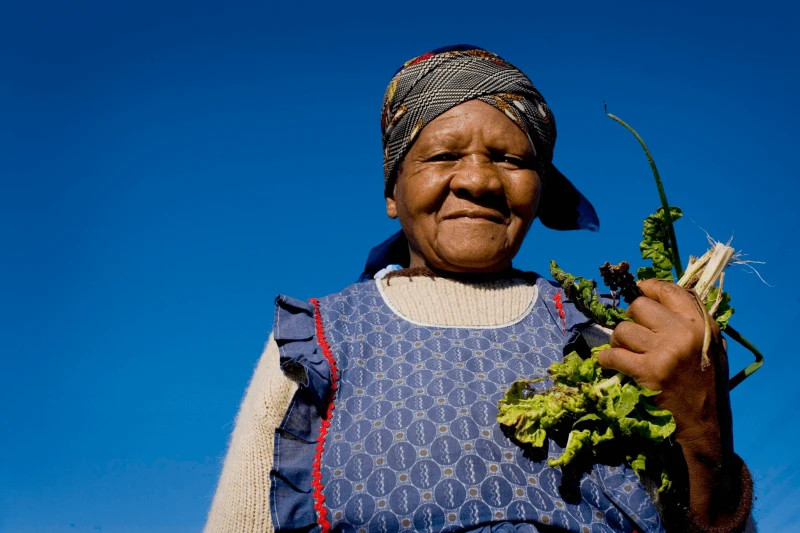With climate disruptions increasing and bans on most genetically-engineered crops, African crop yields remain among lowest in the world
With climate disruptions increasing and bans on most genetically-engineered crops, African crop yields remain among lowest in the world


Africa has a huge population with by far the least sophisticated food production and processing systems. Any improvements would have the potential for the largest profit margins compared to other parts of the globe. Regardless of which agrifoodtech category investors back, there is a need for basic farm produce: the crop at the base of the supply chain.
The average yields of major African crops are both the lowest in the world and the most variable. And climate change is exacerbating this variability, making African supply chains the least assured.
Modern biotechnological solutions can and will have a major transformative and profitable impact on African agriculture, and it is far more worthwhile to invest in African crop productivity than in developed countries.
…
For example, introducing just two transgenes (one for herbicide resistance and one Bt gene for insect resistance) into South African maize increased yields of white maize by 0.60 Mt ha−1 (9.6 bu/acre) and yellow maize by 0.27 Mt ha−1 (4.3 bu/acre) over a large area, which well covered seed costs (Shew et al., 2021).
…
Major African countries are now following the lead of South Africa in realizing that genetic engineering can deal successfully with many of the constraints to crop production, and are eager to have the required traits engineered into their crops.
This is an excerpt. Read the original post here

 | Videos | More... |

Video: Nuclear energy will destroy us? Global warming is an existential threat? Chemicals are massacring bees? Donate to the Green Industrial Complex!
 | Bees & Pollinators | More... |

GLP podcast: Science journalism is a mess. Here’s how to fix it

Mosquito massacre: Can we safely tackle malaria with a CRISPR gene drive?

Are we facing an ‘Insect Apocalypse’ caused by ‘intensive, industrial’ farming and agricultural chemicals? The media say yes; Science says ‘no’
 | Infographics | More... |

Infographic: Global regulatory and health research agencies on whether glyphosate causes cancer
 | GMO FAQs | More... |

Why is there controversy over GMO foods but not GMO drugs?

How are GMOs labeled around the world?

How does genetic engineering differ from conventional breeding?
 | GLP Profiles | More... |

Alex Jones: Right-wing conspiracy theorist stokes fear of GMOs, pesticides to sell ‘health supplements’




 Viewpoint — Fact checking MAHA mythmakers: How wellness influencers and RFK, Jr. undermine American science and health
Viewpoint — Fact checking MAHA mythmakers: How wellness influencers and RFK, Jr. undermine American science and health Viewpoint: Video — Big Solar is gobbling up productive agricultural land and hurting farmers yet providing little energy or sustainabilty gains
Viewpoint: Video — Big Solar is gobbling up productive agricultural land and hurting farmers yet providing little energy or sustainabilty gains Fighting deforestation with CO2: Biotechnology breakthrough creates sustainable palm oil alternative for cosmetics
Fighting deforestation with CO2: Biotechnology breakthrough creates sustainable palm oil alternative for cosmetics Trust issues: What happens when therapists use ChatGPT?
Trust issues: What happens when therapists use ChatGPT? California, Washington, Oregon forge immunization alliance to safeguard vaccine access against federal undermining
California, Washington, Oregon forge immunization alliance to safeguard vaccine access against federal undermining 30-year-old tomato line shows genetic resistance to devastating virus
30-year-old tomato line shows genetic resistance to devastating virus The free-range chicken dilemma: Better for birds, but with substantial costs
The free-range chicken dilemma: Better for birds, but with substantial costs ‘You have to treat the brain first’: Rethinking chronic pain with Sanjay Gupta
‘You have to treat the brain first’: Rethinking chronic pain with Sanjay Gupta
